Iran Needs At Least 7 Million Tons Of Wheat Imports This Year
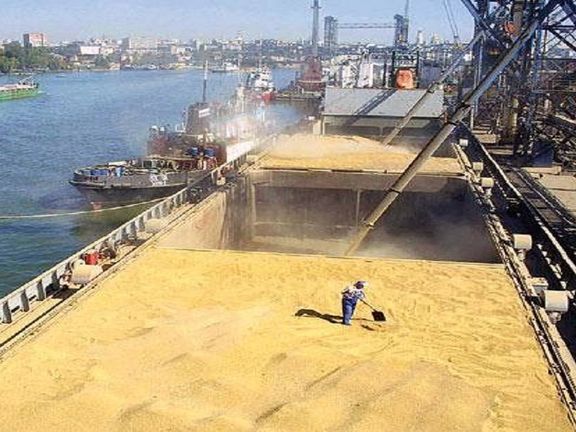
Iran must import at least seven million tons of wheat to meet its domestic needs until March 2023, the chairman of Iran's Grain Union said on Tuesday, amid rising bread prices.

Iran must import at least seven million tons of wheat to meet its domestic needs until March 2023, the chairman of Iran's Grain Union said on Tuesday, amid rising bread prices.
Iran imported a record eight million tons of wheat in the previous year to March 2022 due to the drought that had a huge toll on domestic production, Kaveh Zargaran said in a conference.
He added that the projected imports would be part of a total of 25 million tons of grains, soybean meal and oilseeds.
The forecast seems plausible as it is close to figures announced by other officials in the sector, such as the head of the Flour Producers Association who said earlier this month that the country needs to import at least 20 million tons of grain this year, including six to seven million tons of wheat. Mohammad-Reza Mortazavi admitted that the country has never been so dependent on imports.
Iran, which has in some years been self-sufficient in the production of the staple cereal, is among countries in the Middle East whose production is heavily dependent on the amount of rainfall and has been suffering from a dry spell as authorities have predicted even less precipitation this year.
The importers are now facing extra difficulties as Russia's invasion of Ukraine has disrupted Black Sea grain shipments, increasing the global prices.
In March, reports revealed that Iran has signed a deal with Russiato import 20 million tons of basic goods, including vegetable oil, wheat, barley and corn.
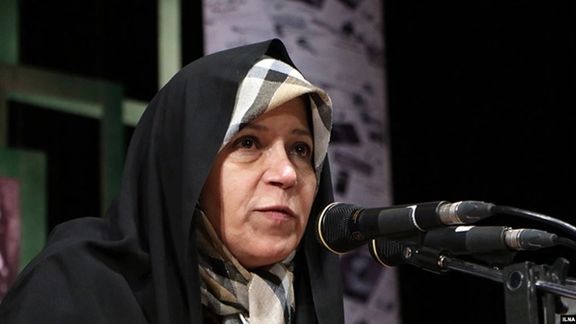
Former lawmaker and presidential daughter Faezeh Hashemi will be prosecuted for supporting US sanctions on Iran’s Revolutionary Guard and insulting the prophet of Islam.
Iran's judiciary spokesperson Zabihollah Khodaian said on Tuesday that the case over her recent remarks is ongoing by the office of the prosecutor general.
Iranian hardliners demanded that the pro-reform politician must be prosecuted for defending the terrorist designation of the Revolutionary Guard (IRGC) by the United States.
Fars news website affiliated with the IRGC claimed a petition for Hashemi to be prosecuted collected over 50,000 signatures.
Speaking on the social audio app Clubhouse, the political activist had said that removing the IRGC from the list of Foreign Terrorist Organizations (FTO) is not in Iran's interest. Negotiations to restore Iran’s 2015 nuclear deal came to a halt in March as Tehran demanded the IRGC be removed from the terrorist list.
Footage of Hashemi Rafsanjani also surfaced in media, talking about Prophet Muhammad and how he used his wife’s money to advertise Islam.
Hashemi is known for her critical remarks about the Islamic Republic, its leaders, and policies. Her father, who for decades was the second most powerful man in the Islamic Republic, who helped bring Supreme Leader Ali Khamenei to power in 1989 and allowed the IRGC to become an economic player in the country.
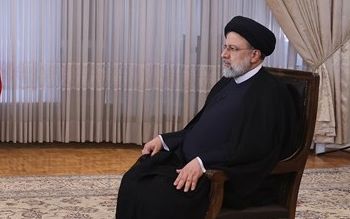
President Ebrahim Raisi has confirmed that the price of bread will rise drastically but says his government will pay cash to most Iranians as compensation.
Until further notice, Raisi said in a televised interview Monday evening, the government will pay monthly around 4 million rials (about $15) to 30 percent of the population at the lowest-income groups, and around 3 million to 60 percent of the population. The 10 percent at the highest income level will receive no cash handouts.
This means the government must spend the equivalent of $850-900 million a month to placate an impoverished population that has already been largely deprived of many daily food staples, such as meat, fruit and dairy products. Food prices have skyrocketed in the past year, by more than 60 percent.
The $10-billion annual cash assistance means the government will print more money and create more inflation.
Iranian pundits and politicians have been warning of possible unrest as bread and other food prices suddenly jumped last week when the government removed import subsidies costing up to $20 billion a year.
The government claims it has made elaborate plans to ensure traditional flatbreads cost the same as before although bread at the subsidized rate will be rationed. Raisi said the government will issue smart bread ration cards within two to three months.
For the first three months the cash handout will go to people’s accounts that they can spend for shopping. Later the payments will go to the smart cards to be spent only for bread.
The massive jump in the price of flour after removal of its subsidies will affect the price of a wide range of foodstuffs including bread, pasta, biscuits, and cakes but the cash handout that the government will pay will not compensate for anything other than traditional flatbreads. The price of western-style baguettes and buns which are widely consumed both at home and at restaurants for instance, has already sky-rocketed by around ten-fold.
Since last week, Iranian security forces have been on high alert in anticipation of possible bread protests and riots. Authorities resorted to shutting down the internet in the southwestern province of Khuzestan where some protests were first reported on Friday.
Before the 1979 revolution, the government subsidized fuel and other necessities, but with high oil exports and better financial management it balanced the books. The Islamic Republic continued and expanded subsidies relying on oil income, which wildly fluctuated due to the war with Iraq in 1980s and later international and US sanctions.
The head of the Planning and Budget Organization said Monday that fuel subsidies cost the government more than $100 billion annually, which is far more than the country’s oil export revenues..
Iran began paying cash handouts to compensate for removal of energy and other subsidies in December 2010 based on legislation proposed by President Mahmoud Ahmadinejad's government. That payment is still made but its purchasing power has declined as the national currency has lost most of its value.
Most Iranians at the time, around 68.5 million out of 75 million, signed up to benefit from the billions of dollars of handouts.
Payment of cash handouts at first brought popularity to Ahmadinejad, particularly among lower-income groups, but his government's failure in controlling inflation and ever-increasing cost of living dissipated the initial euphoria among the lower-income classes.
In a little over three years the depreciation of the national currency pushed down the purchasing power of the 450,000 rial cash handout per person by over 40 percent. The amount of cash handouts has remained the same since the introduction of the plan but the value of the national currency has hugely dropped.
In 2010, the average monthly shopping basket of urban families cost 700,000 rials but the same money buys just a few eggs now.
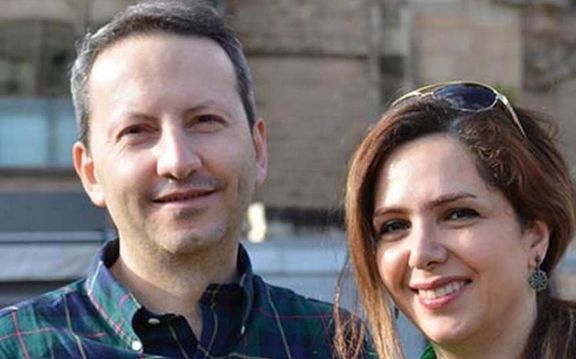
Iran once again has threatened to execute a Swedish Iranian dual national scientist held hostage in Tehran, ruling out a prisoner swap with Sweden.
The Judiciary spokesman Zabihollah Khodayan on Monday ruled out a prisoner swap, as initially the media had speculated would be the case.
Last week Iranian semi-official media reported that a death sentence for “espionage” against Hamidreza Djalali (Jalali) was approved by the supreme court and would be carried out soon. Djalali was arrested in 2016 when he traveled to Iran on the invitation of a university and later sentenced to death for "espionage."
The news came as the long trial of Hamid Nouri, a former Iranian judicial official in Sweden came to an end and the prosecution demanded in April the maximum sentence of life in prison.
The threat of executing Djalali was seen as pressure by Tehran to reduce the possible conviction of Nouri on charges of war crimes in the 1988 prison executions of thousands of political detainees in Iran.
Sweden arrested the man in 2019 when he arrived at Stockholm for a vacation, having been tipped off about his alleged crimes in 1988. Sweden has claimed universal jurisdiction in taking the action, since accusations against Nouri amounted to war crimes.
Judiciary’s Khodayan on Tuesday insisted that the scientist death sentence is not related to Nouri’s trial in Sweden and the government will take steps to carry it out. But Tehran had demanded Nouri’s release on May 2, and there is little public doubt that the Islamic Republic is pressuring Sweden.

On Monday, the spokesman of Iran’s foreign ministry Saeed Khatibzadeh criticized Nouri’s trial, insisting that Sweden has no jurisdiction to prosecute the former official, who is accused of having had an active role in the summary trials and executions of political prisoners more than three decades ago.
Khatibzadeh complained that Nouri’s “basic rights” have been violated, but few governments or human rights organizations would take this charge seriously while Iran is notorious for its secret trials of political prisoners without due process of law.
Kazem Gharibabadi, deputy head of the Judiciary also announced that the Islamic Republic “will not tolerate the violation of Nouri’s human rights.” Gharibabadi was previously Iran’s envoy to international organizations in Vienna and participated in nuclear talks last year. He also repeated Tehran’s unproven accusations that Djalali was an Israeli spy.
“Sweden is Mossad’s intelligence partner and has pursued recruitment of certain individuals and actions against our national security,” he said. He claimed to have proof and said that he threatened the Swedish ambassador that if he complained again about Djalali’s case, Tehran would share the documents with the media.
Amid attempts by Europe to jump start stalled nuclear negotiation between Iran and the United States, the execution of Djalali would be damaging step, to say the least.
Both Sweden and the United States expressed deep concern last week over Iran’s threat to execute Djalali. The European Union and its foreign policy officials have not publicly condemned Iran’s latest threat, perhaps not to derail efforts to restart nuclear talks, but privately they might have brought the issue up with the Iranians.
Enrique Mora, the EU’s coordinator in the talks is scheduled to visit Tehran later Tuesday to discuss the stalled negotiations.

Venezuela is expanding crude imports from Iran to feed its refineriesas as both countries struggle with United States sanctions, Reuters reported Monday
Documents cited by the agency suggested at least 200,000 barrels of Iranian crude arrived in mid-April at the Cardon refinery, Venezuela's second largest, which processes 310,000 barrels per day (bpd), with another 400,000 barrels discharging this week at the country's Jose port from the tanker (VLCC) Dino I.
Fars News Agency recently reported that under a new agreement reached under Iranian President Ebrahim Raisi, Iran had exported to Venezuela 2 million barrels of condensate – a light liquid produced during gas extraction – in seven months, expanding trade begun under the previous administration in Tehran. Venezuela mixes condensate with its own heavy crude to produce a suitable feed for refining.
Iran in return is offering through National Iranian Oil Company (NIOC) a way for Venezuela to dilute and export its heavy crude, Reuters reported. The Dino I is scheduled to sail later this month with Venezuela oil for NIOC’s Naftiran Intertrade Company. Meanwhile the Venezuela-owned Maximo Gorki will discharge 2 million barrels of Iranian condensate at the port, while the Iran-flagged Derya waits in Venezuelan waters with another cargo.
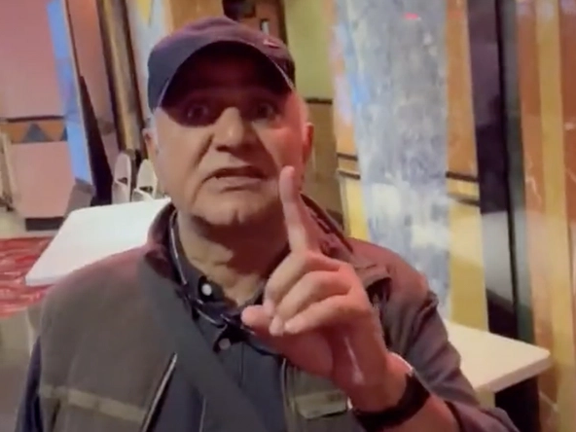
The US Congress has started probing why the Biden administration granted visa to an Iranian actor who is reportedly close to the country’s Revolutionary Guard (IRGC).
According to a letter obtained by the Washington Free Beacon, Indiana’s Republican member of the House Armed Services Committee, Jim Banks, has asked the administration for explanation about the visa to Parviz Parastui (Parastouei), saying he has an "overt connection" to the IRGC and the former commander of its Qods (Quds) force Ghasem Soleimani.
“Parastui has been directly involved in IRGC funded propaganda projects, promoting a hardliner ideology that seeks to shape Iran’s culture to the agenda of the Iranian regime”, the letter read.
During a film screening event in Los Angeles late last month that was organized by the far-left anti-Israel group Code Pink, Parastouei was caught on camera during a row with an Iranian dissident.
Before the event, Sam Rajabi, a former judoka champion who now lives in the US, insisted that Parastui explain his relationship with Soleimani, while filming him on his mobile phone. Parastoueire refused to respond, and the encounter ended in Parastui knocking the mobile out of Rajabi's hand. The video taken by Rajabi went viral on social media with hundreds commenting in support of or against Parastui.
Code Pink introduces itself as a women-led grassroots organization "working to end US wars and militarism" and supporter of peace and human rights initiatives. Code Pink condemns US sanctions on Iran.